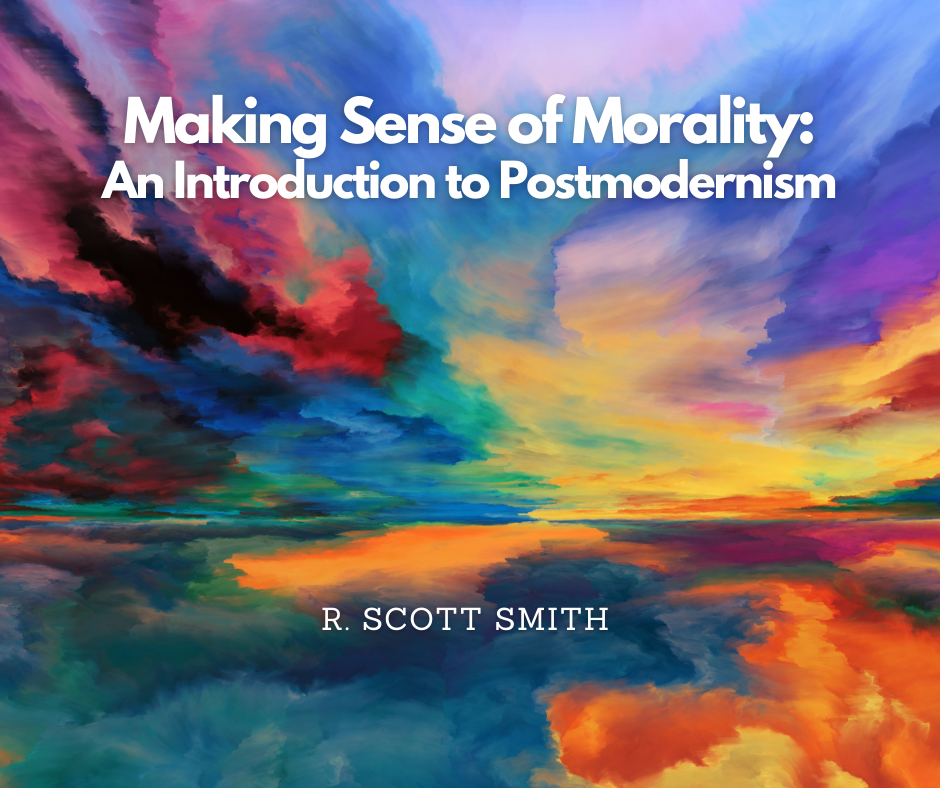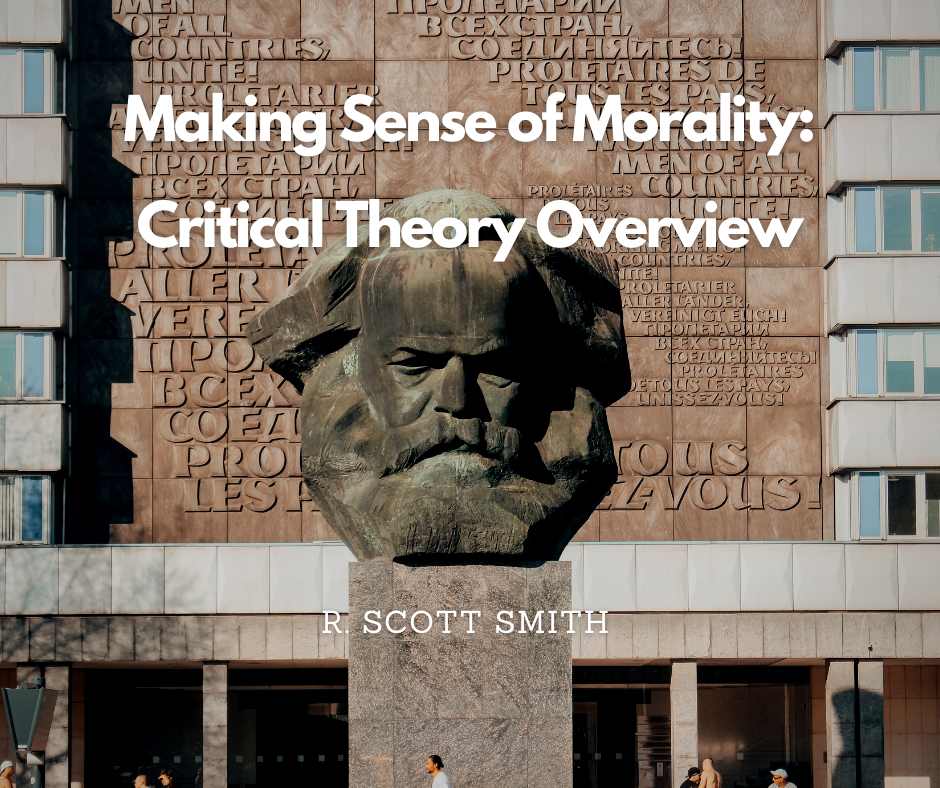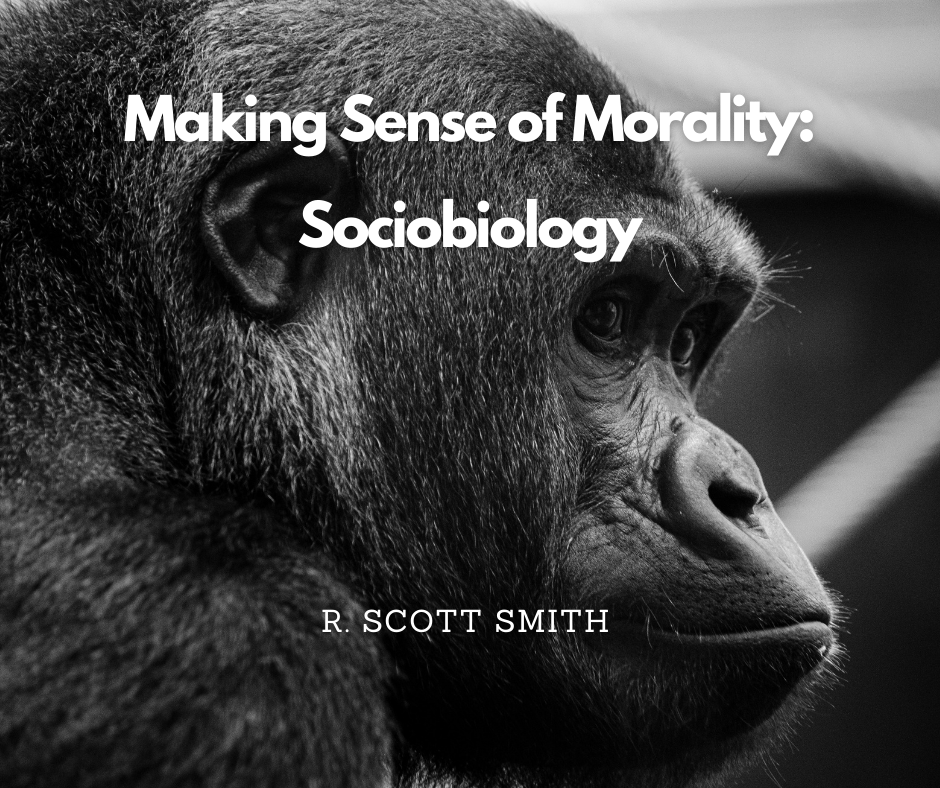Making Sense of Morality: Where Do We Go from Here?
/Editor’s note: R. Scott Smith has graciously allowed us to republish his series, “Making Sense of Morality.” You can find the original post here.
Summary of the Survey
We have surveyed major ethical options for what our core morals are, including:
Are they how we happen to talk?
Are they physical things? Perhaps evolutionary products?
Are they ways of behaving or moving our bodies?
Are they results of a utilitarian calculus?
Are they emotive utterances?
Are they particulars? (nominalism)
But, at least since Hobbes, I’ve argued that none of the views can preserve our core morals of murder and rape being wrong, and love and justice being good.
What Are These Core Morals?
For one, they seem to be objectively real. They seem to exist independently of us as moral principles and values. They also simply seem to be intrinsically valid, and not due to anything else (like, the consequences). That is, they seem to have an essential moral nature. Moreover, they cannot be just physical things or particulars, as we’ve seen. Instead, they seem to be a “one-in-many” – each one is one principle (or value), yet it can have many instances/examples. In sum, they seem to be Platonic-like universals.
That raises many questions, however. Earlier, I remarked that Christine Korsgaard rightly observed that it’s hard to see how such things could have anything to do with us. While she thinks people are physical, it still applies if we are a body-soul unity. Why should these abstract objects have anything to do with us? On Plato’s view, they exist in a heavenly realm of values as brute features of reality.
What makes justice and love character qualities that should be present in us? Why is it inappropriate morally for us to murder or rape? These are normative qualities, not merely descriptive. As we’ve seen, it is hard to see how we can get the moral ought from what is descriptively the case. Yet, that problem could be overcome if humans have an essential nature that makes these moral values appropriate for them, and these acts inappropriate.
Earlier, I argued that the soul as our essential nature provides a sound explanation for how we can be the identical person through change. Body-soul dualists affirm that the soul is our essential nature, and it sets the boundary conditions for what is appropriate for us. For instance, it is inappropriate for us to grow a cat’s tail due to our nature, and it is inappropriate for us to murder due to our nature.
We also saw another reason for the soul’s existence. We do in fact think and form beliefs, yet these have intentionality, which I argued is best understood as something immaterial and having an essence. Now, it is hard to conceive how a physical brain could interact with something immaterial, but that problem does not seem to exist for an immaterial soul/mind.
Moreover, why should we feel guilt and shame when we break these core morals? That doesn’t make sense if these morals are just abstract objects that are immaterial and not located in space and time. Instead, we seem to have such responses in the presence of persons we have wronged morally. Also, retributive justice doesn’t make sense if we repay an abstract principle or value. But it would make sense if a person should be repaid.
There is another explanation we have seen for the grounding of these core morals: they are grounded in God. That helps solve the question of why we feel shame when we break one of these morals. But, that also raises questions, such as: are they good because God commands them, or does God command them because they are good (i.e., the Euthyphro dilemma)? Also, which God would this be?
I will start to tackle these in the next essay. But, first, there is another option for properties besides universals (realism) and nominalism. It is divine conceptualism; properties just are God’s concepts. Justice in us is God’s concept. Yet, concepts have intentionality, but virtues do not. When we think about people being just, we don’t mean they have a concept of justice (though they could), but that they have that virtue present in them. So, offhand, divine conceptualism seems to trade on a confusion.
For Further Reading
R. Scott Smith, In Search of Moral Knowledge, ch. 12
R. Scott Smith is a Christian philosopher and apologist, with special interests in ethics, knowledge, and seeing the body of Christ live in the fullness of the Spirit and truth.


























































